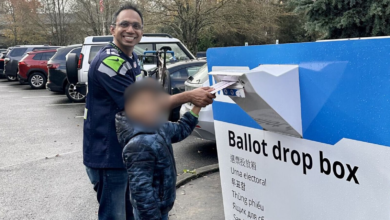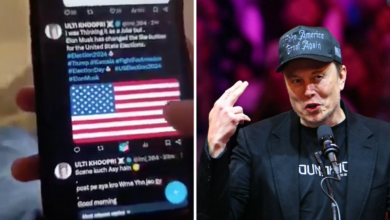Do age gap relationships still warrant raised eyebrows? Experts weigh in

Age may just be a number when it comes to being fun-loving and vivacious but the very same number descends into severe grey territory when applied to relationships. In an era where romantic boundaries are increasingly getting blurred with people being spoilt for choice to a point beyond retrieval, it can’t hurt to get our heads on straight for once. Are age gap relationships worth the deep dive? Model Rosie Huntington-Whiteley and actor Jason Statham, met when she was 22 and he was 42. This was in 2009. With a 20-year age gap and 15 years and counting together, the couple, now 37 and 57 respectively, are parents to children Jack and Isabella, and are seemingly thriving together(Photos: Instagram/rosiehw) Demystifying the alleged toxicityDoes seeing a sizeable age gap between partners inadvertently raise your eyebrows or are you a romantic who believes age truly is, just a number? Either which way, the layman’s perspective on the difference in age that actually qualifies the relationship to be plastered with the ‘age gap’ tag, is very different from the expert-perspective. The term ‘age gap’ in itself reeks of scandal. Think, 8, 10, 12 years (or more, no judgement). Relationship coach Sidhharrth S Kumaar however, takes the punch out. He says, “The minimal age difference which is societally seen as an age gap relationship has changed significantly over the last few decades. Pre-2010, the age difference used to be around 5 to 7 years which was quantified as an age gap relationship. However, post 2010, this has been reduced to 3 to 4 years”. Whatever may be the difference in age, the layman’s perspective on it is not entirely unfounded. Sidhharrth ls a perceived lack of common interest, difference in emotional development and maturity and an overall questionability when it comes to how authentic the equation may be, as potential factors leading to the red flag rep of age gap relationships. He elaborates, “A significant age difference could imply that the couples have dinct cultural or generational experiences, which would cause others to wonder about their relationship. Large age differences can (also) cause one partner to assume, instead of emotional compatibility or true love, that another may have ulterior reasons including financial stability or youthfulness”. Age IS just a number until…Though a difference in age does not need to be a deal breaker or even a major factor worth considering, it can still end up building a nexus of pressure. Matchmaker, relationship coach and social health advocate, Radhika Mohta further deflates the hullabaloo. She says, “Age becomes an important number when people are looking to biologically have kids and their timeline is constantly ticking. In my work what I have seen is that when a man is in a 30-plus bracket (in the dating-to-marry segment), he is looking to date someone who is slightly younger so they have time for courtship and they have time to get to know each other and then eventually have kids. But, if both of them are say in their 20s and they have time on their side, then they are ok letting go of 2 or 3 years”. Referring to the paradigm shift making itself known, Radhika also shared how she is increasingly seeing lesser care with regards to the woman being the elder one in the relationship. She shares, “I am definitely seeing more women who are open to the idea of marrying somebody who’s maybe 2 to 3 years younger to them. And also men who are more comfortable with the idea of having a woman who is 2 to 3 years elder to them, in the sense that she would be more mature, sorted and would have seen the world at a certain level of exposure”. That being said, sometimes age isn’t just a number, but a deal breaker. Radhika shared a little professional anecdote about a 33-year old female client who she attempted to match with a 41-year old male client. She was from Europe, he was from Mumbai, albeit with visas across multiple countries, so travelling and settling wasn’t the issue. The icing on the cake? Both were staunch vegans. Over an hour-long Google meet date, the duo experienced some crackling chemry. But that was about it. The woman was very clear about not taking things forward. The reason? He was 41 — a deal breaker for her. What’s gender got to do with it?Every relationship, irrespective of its context, has a power dynamic subtly (or otherwise) dictating its trajectory. When you begin considering the added layer of gender, that too in confluence with an age gap, there is much to unpack in understanding the trends this trifecta spells out. Sidhharrth explains, “In synergy with societal standards and expectations, gender significantly shapes power dynamics in age gap couples. Older men with younger women might reinforce conventional roles, in which the guy maintains greater authority because of experience and financial security, therefore generating a possible imbalance. Older women with younger men could question these systems, but they also deal with preconceptions like the ‘cougar’ moniker. Furthermore influencing the dribution of power includes views of maturity, society’s expectations for family and profession, and gender stereotypes. Complicating these interactions further are sexual dynamics and peer influence of social media”. Particularly with reference to how things have been in the Indian context, Radhika says, “Traditionally speaking, we have been fairly patriarchal here in India, seeing men who are older and who have taken time to build their career and wealth, prove whatever they want to prove to their family and then get married”. She however, is more optimic in her approach and adds, “If people have an equitable relationship, it’s fine. I don’t think age as a number is going to affect that”. Grooming versus true loveGrooming is a significantly serious issue and is considered many as a given subcurrent when it comes to age gap relationships. Siddharrth draws a clear line of difference between the two. He explains, “A classic case of grooming is one in which the older partner strives to manage or shape the younger partner for personal benefit, therefore engaging in manipulation, control, and exploitation. On the other hand, an actual age gap relationship is based on mutual respect, consent, equality, and shared values; both partners help each other to grow and be unique”. Dwelling on long standing patterns, Radhika elaborates how flexibility, bendability and an agreeable nature is what for a while, has reigned supreme when it comes to narrowing down bio datas for a potential life partner, particularly when on the look out for a bride. But she also doesn’t discount the fact, that there are people who have just gotten along well, irrespective of their difference in age. For those in loveOthers may not see it that way, but, it’s not all bad. Moving past all preconceived notions, age gap relationships can prove to be rather wholesome. Siddharrth attests to this, saying, “Certainly, they have retaining factors. These include complementary life events where the younger gives vitality and curiosity while the older partner offers wisdom and security. Emotional needs in balance encourage empathy and understanding. As couples grow personally learning from one another, the relationship lets the pair concentrate on their special relationship, and variety in interests stimulates intellectual development and new activity exploration”. But how do you make sure the spark doesn’t die out, especially in the face of significant societal judgement? Radhika says, “It’s not just about age. What does it mean to you? What feeling do you want the person to arrive at? So if there are two people with a significant age difference, they may want to have conversations around what are the kind of lived experiences they’ve had, because of the number they are currently pegged at”. Siddharrth too, suggests that couples must look inwards rather than outwards to iron out the kinks arising from their difference in age. Authentic and open communication especially around power dynamics, avoiding age and experience in regular discussions, a shift in focus from biological age to emotional age and genuine, mutual respect for each other make up his suggestions. For the onlookersNot agreeing with a close friend or loved one’s choice of partner is not an uncommon experience. While it’s always a tough topic to breach, things are much more complicated if the concerns are about an age gap relationship. Radhika suggests introspecting before bringing it up with them. More often than not, one will find that it’s not necessarily the age that is bothering you, but instead, factors like narcissism, control and a possessive behaviour. Sidhharrth on the other hand, believes it is important to continually reinforce the fact that you are coming from a space of care and not criticism. Open-ended questions, instead of self-serving statements are a good place to start. He also adds, “Stress that your objective is their well-being and happiness. Tell them you are up for future conversations free from judgment, then give them time to digest the material at their own speed”. What’s your take on age gap relationships?







